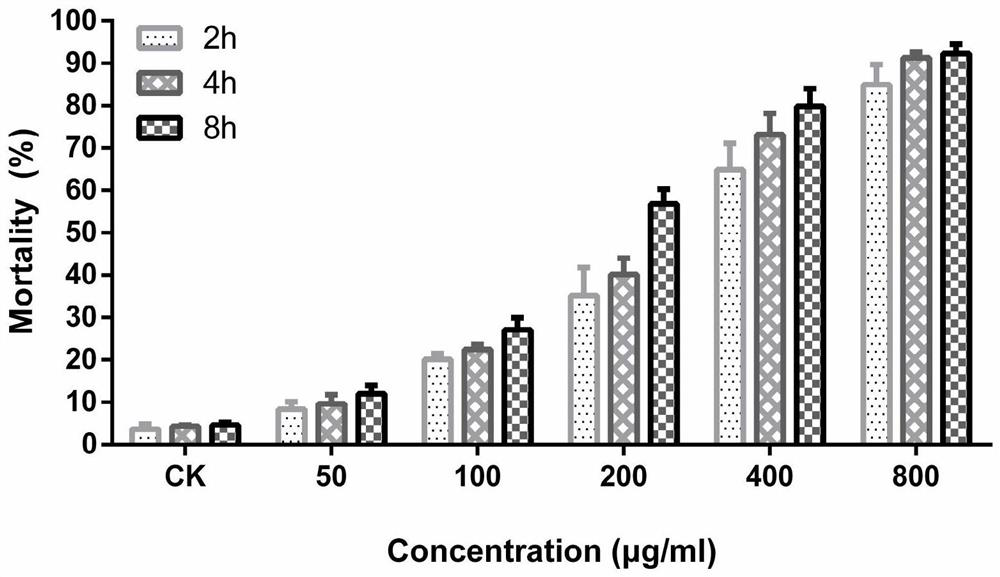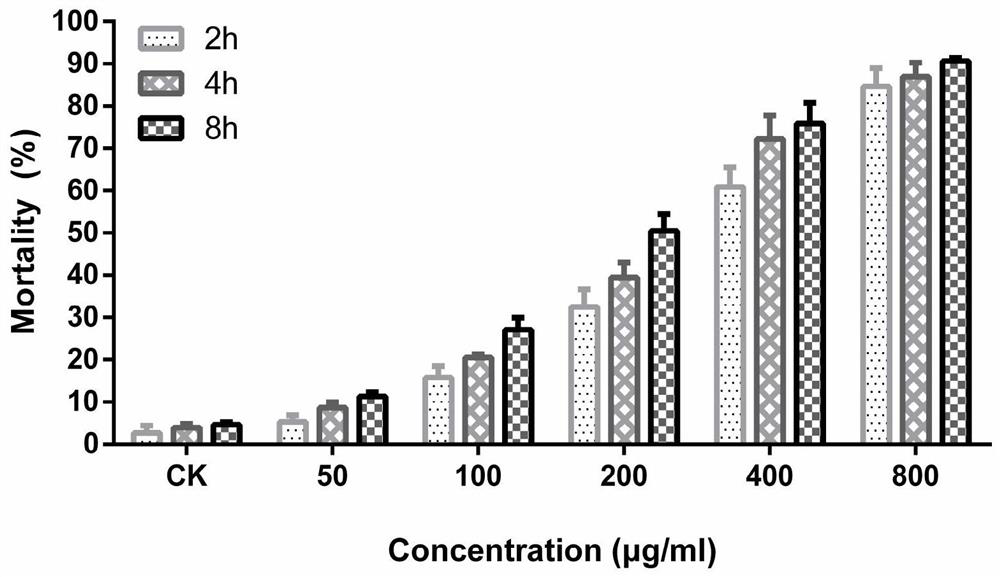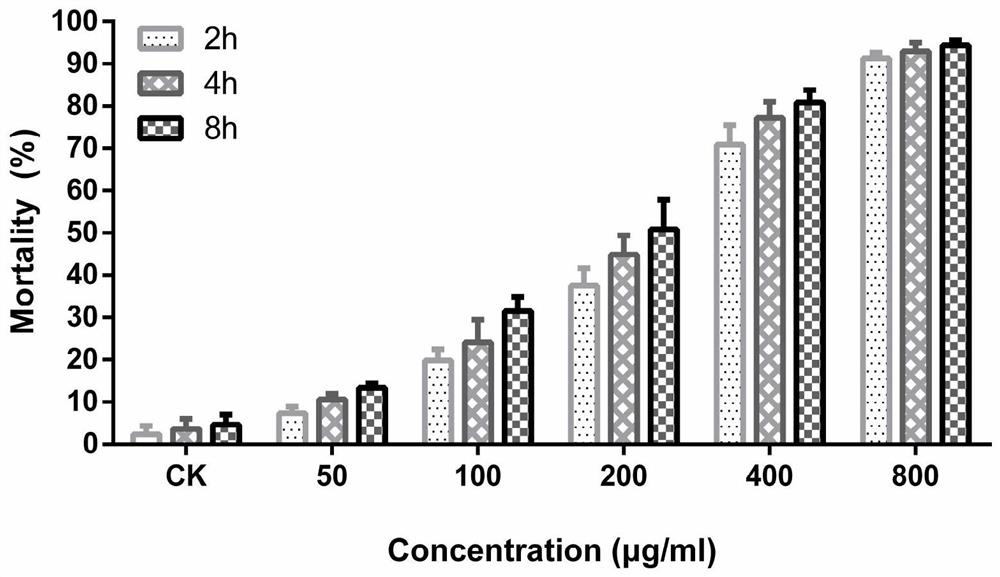Insecticidal genes of the Pseudoannulata spider b family and their encoded mature peptides and their applications
A technology of quasi-ringed leopard spider and insecticidal gene, which is applied in the fields of application, insecticide, genetic engineering, etc., can solve problems such as not being able to meet the selection requirements of insect-resistant genes, achieve maximum protein production, optimize induction conditions, and efficiently yield effect
- Summary
- Abstract
- Description
- Claims
- Application Information
AI Technical Summary
Problems solved by technology
Method used
Image
Examples
Embodiment 1
[0041] Preparation of toxins
[0042] Design and construction of spider toxin genes
[0043] Pseudo-ringed leopard spiders were collected from paddy fields in Pukou District, Nanjing City, Jiangsu Province, and reared with brown planthopper indoors for 90 days. The venom glands were taken and the transcriptome sequenced. The number, arrangement, structural domain prediction and sequence analysis of cystines were used to obtain a class of candidate genes of pseudo-ringed leopard spider toxin, and one of them, PPTX-04, was selected, and its base sequence was as shown in SEQ ID NO. 1, the amino acid sequence of the encoded protein is shown in SEQID NO.4, and its signal peptide, propeptide and mature peptide were predicted by SpiderP (http: / / www.arachnoserver.org / spiderP.html), and it was matured The peptide sequence was codon-optimized according to the codon preference of E. coli, and the PPTX-04 toxin gene sequence for expression in E. coli was designed as shown in SEQ ID NO. 1...
Embodiment 2
[0053] Using the design and construction method of the spider toxin gene in Example 1, the insecticidal genes of the pseudo-ringed leopard spider SEQ ID NO. 2-3: PPTX-20, PPTX-21 were prepared; and the corresponding The recombinant plasmids were induced to express in a large amount, and the recombinant toxins encoded by different genes were obtained after purification.
[0054] The nucleotide sequence of the insecticidal gene PPTX-04 of the pseudo-ringed leopard spider is SEQ ID NO.1, as follows:
[0055] atgaaattcgcagttgttctacttttttccctggttgtacttgcagttgcaagtgaatttgtggaggaagatataagagatattgaagaagaacttccagagcaacagaggggttgcgctgatcttcgggaaccatgtacagacgactgcagctgctgtggaagtgaaggagtttgcaactgtaaccatccgtccgtaaacctggttgcttctgcaaaaggcagagatagatagat
[0056] The nucleotide sequence of the insecticidal gene PPTX-20 of the pseudo-ringed leopard spider is SEQ ID NO.2, as follows:
[0057] atgaaatacacaatagttctgctgttttcgttggtcttgcttgttgttgcaagcgaatcggttgaagatactaatagagaggattttccagaacaacaaagag...
PUM
 Login to View More
Login to View More Abstract
Description
Claims
Application Information
 Login to View More
Login to View More - R&D
- Intellectual Property
- Life Sciences
- Materials
- Tech Scout
- Unparalleled Data Quality
- Higher Quality Content
- 60% Fewer Hallucinations
Browse by: Latest US Patents, China's latest patents, Technical Efficacy Thesaurus, Application Domain, Technology Topic, Popular Technical Reports.
© 2025 PatSnap. All rights reserved.Legal|Privacy policy|Modern Slavery Act Transparency Statement|Sitemap|About US| Contact US: help@patsnap.com



